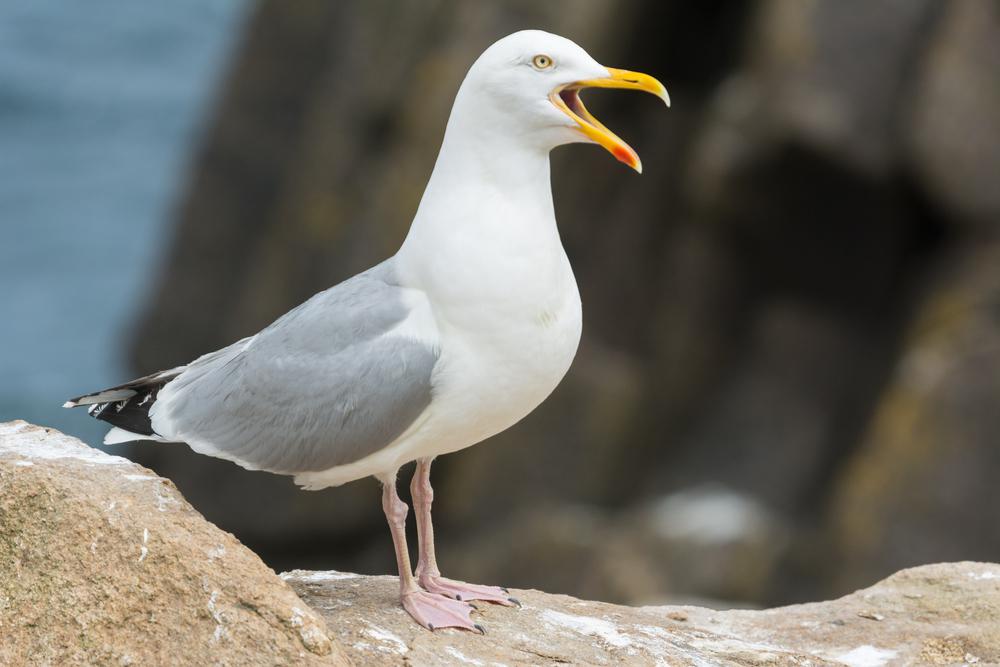Gull Management

Seagulls can often be a nuisance to residents.
If this is the case some advice and common queries are below.
Stop feeding or leaving food for seagulls
It’s a simple solution that will really help - everyone can play a part and make a massive difference. The availability of food encourages the birds to our streets and public places. They are what's known as 'opportunistic feeders', and will scavenge for food dropped by pedestrians or thrown out of cars.
Please remember:
- Do not throw leftover food on to the ground or pavement
- Avoid getting rid of your scraps in bins with no lids
- Do not intentionally feed the seagulls
The council have no statutory duty to deal with gulls, so we really need your help. If there is nothing for them to eat, the birds will not be attracted to these places.
Owners and occupiers can give someone else permission to act on their behalf, if they are having a problem with seagulls. We recommend getting specialist advice from a pest control company before committing to any works.
Can I get rid of them myself?
Gulls, their nests, and their eggs are protected by the Wildlife and Countryside Act 1981 and Nature Conservation (Scotland) Act 2004, which make it illegal to intentionally or recklessly kill, injure or take any gull. It is also a criminal offence to take, damage or destroy and active nest or its contents, prevent or obstruct gulls from using their nest.
While the council has no responsibility for gull management, you can give someone else permission to act on your behalf. Under the terms of a Gull public health and safety licence, authorised people can carry out activities that would otherwise be illegal under the Wildlife & Countryside Act 1981 (as amended).
Some activities, such as nest or egg removal, also need to be carried out frequently over a long period of time to be effective.
You can find more information about this licence, and gull management in general, on the NatureScot and BPCA websites.
What are the council doing to help?
While we do not have a statutory duty to deal with gulls, we have adopted a preventative approach to tackling gull nuisance:
- Working with businesses and food outlets to ensure correct storage and disposal of waste
- Discouraging littering
- Carrying out litter patrols in the worst affected areas
- Responding to complaints of excessive bird feeding
- Providing advice to those experiencing issues with gulls
How do I prevent seagulls from nesting on my property?
Proofing your property so birds can not roost, or nest is an effective means of control. By removing old nests once they have been abandoned and taking appropriate action to prevent nesting in the future.
Gulls can be discouraged from nesting and roosting on your property by using a variety of methods:
- Netting - consisting of strong weather-proof plastic nets, appropriately secured.
- Post and wire systems - wire or strong mono-filament stretched between steel posts that stop the gulls from roosting.
- Spike systems - plastic or stainless-steel prongs sticking out vertically, at a slight angle, from a base strip. These are placed on problem areas, such as sills and roof spaces, to stop gulls from being able to land.
It's also so important that you store your waste properly and dispose of it in a responsible way.
Is it illegal to feed seagulls?
It’s not illegal to feed the gulls but excessive bird feeding, such as scattering food in your garden, can encourage pests, including gulls. This causes noise and fouling problems.
To report instances of excessive feeding, please email: ehadmin@shetland.gov.uk
What can I do about injured chicks or seagulls?
If you find a chick that has fallen from its nest and it’s not injured, it must be left where it is - the parents will continue to look after it. If it’s in danger, it can be moved a short distance to a safer place.
If it’s injured, you can report an animal in distress (sick, injured or trapped animal) to the SSPCA on 03000 999 999.
